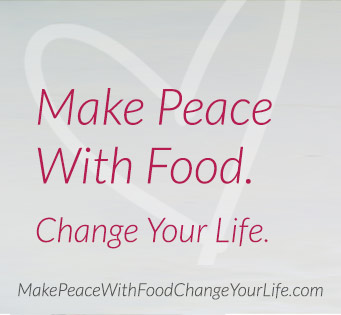Simplify your Healthy Eats, everyday.
1. Slow down on the nuts and seeds
It would take Grok and his family half a day to shell enough almonds to make the equivalent of a couple cups of almond flour. Although we have easier access to this grain-free baking staple, we shouldn’t go crazy with the nut flours and nut/seed butters.
Further, nut/seed butters and flours disguise the actual volume of nut/seed consumption. For example, a cup of almond flour contains 90 almonds and a tablespoon of almond butter contains 7 almonds… so we can often eat huge amounts of nuts without noticing it.
 Nuts and seeds, while beneficial in moderation, contain anti-nutrients like phytic acid and enzyme inhibitors. Soaking nuts/seeds in salt water greatly reduces these components, but it still leaves the problem of oxalates. I’ve already discussed oxalates (what I call the “grain-free diet trap“), a point especially pertinent for those with leaky guts.
Nuts and seeds, while beneficial in moderation, contain anti-nutrients like phytic acid and enzyme inhibitors. Soaking nuts/seeds in salt water greatly reduces these components, but it still leaves the problem of oxalates. I’ve already discussed oxalates (what I call the “grain-free diet trap“), a point especially pertinent for those with leaky guts.
Perhaps the most detrimental problem with excessive nut/seed intake is that they are very high in polyunsaturated fatty acids. While omega-3 fatty acids are anti-inflammatory, polyunsaturated fats– a.k.a omega 6 fatty acids–are pro-inflammatory. Additionally, excess polyunsaturates disrupt hormones, impair thyroid function, impair the immune system, contribute to weight gain, and more (source). While omega 6′s are necessary in our diet, we generally have waaaay too much omega-6 to omega 3 in our diet.
Finally, the seasons naturally constrained Grok to a rotation diet. For example, almond harvest lasts from August to November and walnuts are in season from November to June (source). Again, it benefits us to look to Grok and be conscious of variety, rotation, and season when consuming nuts and seeds.
2. Don’t eat lean protein
As Dr. Weston Price recorded in his landmark book, primitive cultures greatly valued the organ meat and fatty pieces of animals. Likewise, Grok would have consumed animal protein along with its naturally-occurring fats. Boneless, skinless chicken breasts? Not for Grok.
Further, according Nourishing Traditions, the Bible of impolitically correct nutrition
So enjoy the marbled cuts of beef, the egg yolks, and the chicken skin. But do make it a priority to source local, grassfed/pastured animals. Since animals store toxins in their fat, supermarket meat and dairy is laced with toxins, hormones and antibiotics.
3. Stop drowning your body in water
Today, many self-proclaimed health fanatics see their huge, BPA-free water bottle as a body extension. Religiously, they down half their body weight in ounces of water every day. Trust me, mainstream health fanatics, there’s no judgement here. Because I used to do the same thing.
Fortunately, I know better now and my body thanks me for it. I began to ponder the fact that Grok didn’t carry a water bottle and there was no way this innocent being, incorrupted by the media, forced himself to drink copious amounts of water. Matt Stone sums it up perfectly in Eat for Heat: The Metabolic Approach to Food and Drink when he says,
when he says,
In his popular book Eat for Heat, Matt explains how excessive water intake can actually lowermetabolism rate.
Nutrition expert Dr. Natasha Campbell Mc-Bride also contradicts the 8-glasses-a-day rule. In her book The Gut and Psychology Syndrome Diet, She recommends an intake of about 1 liter of water (or another healthy liquid, such as homemade bone broth) per day. That is about 3 drinking glasses of liquid.
Additionally, when the adrenals are stressed or fatigued, excess water intake without adequate salt intake can lead to cellular dehydration. (Source)
I’m going to go into more depth on this topic in a later post, but the main point is not to force yourself to drink excessive amounts of water.
4. Don’t cook in chemicals
Grok didn’t face this issue, but we do. It takes time, effort, and money to separate ourselves from the onslaught of modern chemicals. Besides chemicals in our personal care and home cleaning products, our cooking supplies pose a source of toxins such as:
Aluminum foil
Aluminum bakeware
Aluminum coated pots
Microwaves
Plastic wrap
Teflon pans
Plastic cooking utensils
BPA-laced tupperware














No comments :
Post a Comment